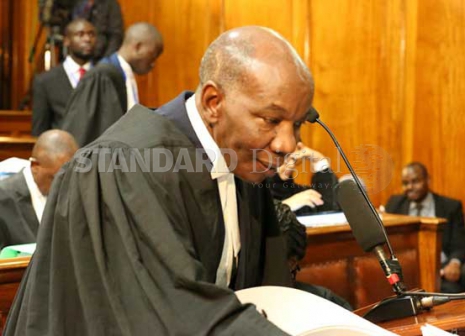×
The Standard e-Paper
Stay Informed, Even Offline

President Uhuru Kenyatta on Tuesday set out to demolish the petition by his rival, Raila Odinga, as he tried to convince the Supreme Court that he fairly and convincingly won the presidential election.
Maintaining that he had won the election with a big margin, President Kenyatta, through his lawyers, said the Supreme Court has no powers to overturn the will of the people.